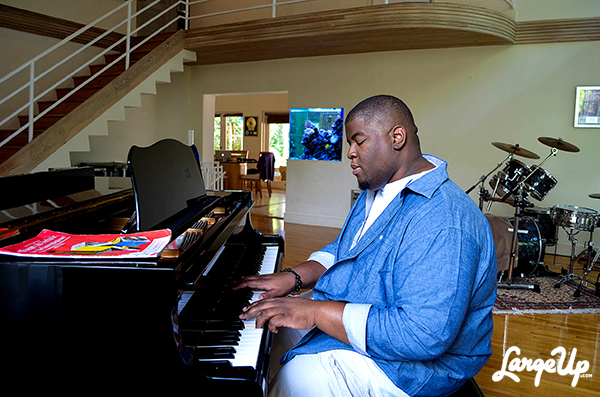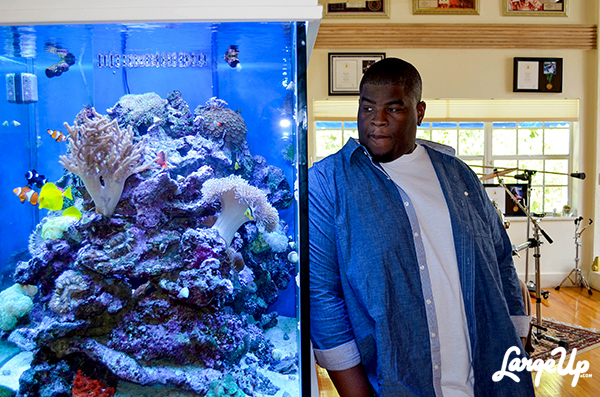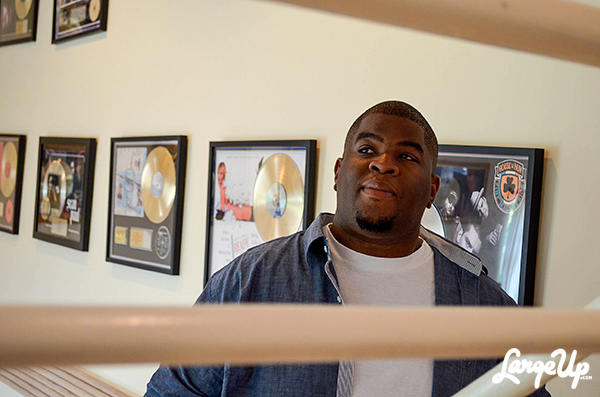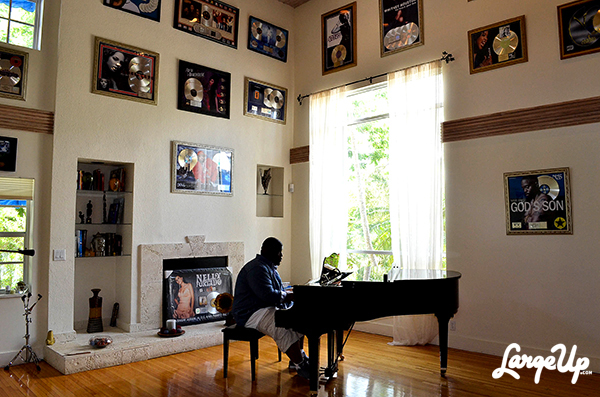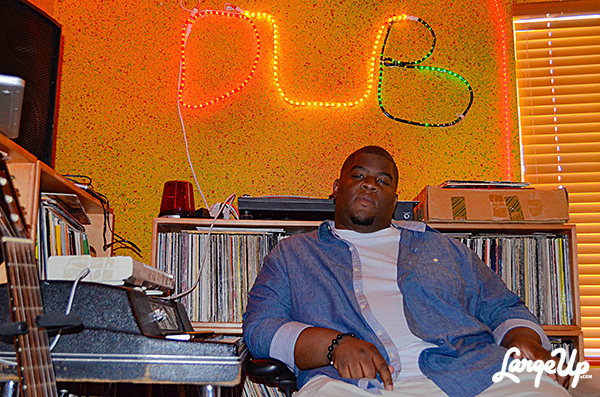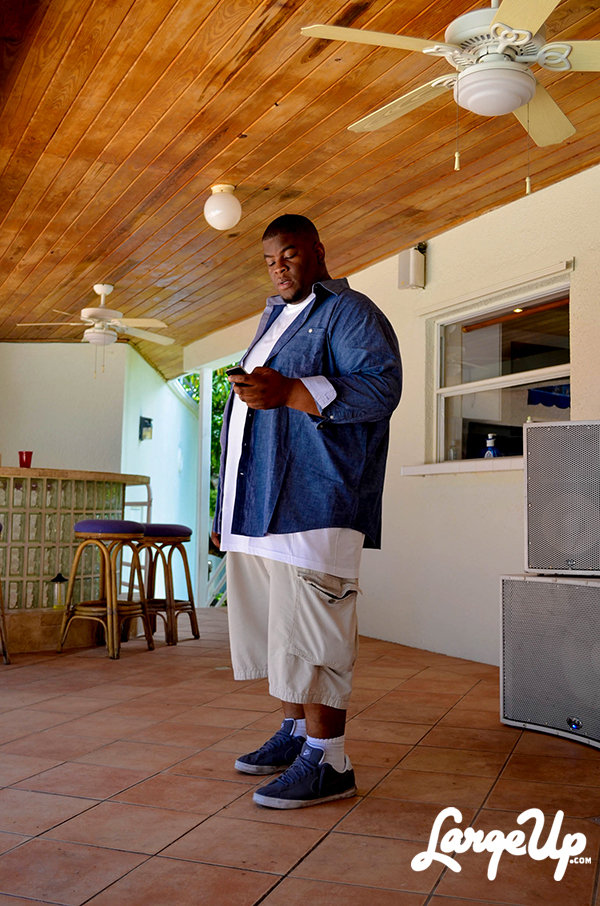LU: What’s going to sting next summer?
SR: I don’t know yet. I mean I feel it, cause I been here before. This is similar to ’91, ’92 to me, that’s how I feel.
LU: Why is that?
SR: Cause there are a load of dance records from people that you will never see in three years. And they’re big records now, seem like they rule the whole world off that buzz. And that’s how it was. You know C + C Music Factory, Snap, Black Box, Technotronic. Which is great. I might do one or two of those records from that era just for fun, just to play with it. I understand that after this large electronic barrage that people fiend for the simplest organic sound that tickles the emotion to come back into it, more than being technically sandblasted. That’s the experience of being around the block a few times, you see what’s happening. We’re back at that point now.
What’s gonna happen in 2013? The same thing that’s happened in ’93. People are just fiending for something that actually feels like cooked food. I know McDonalds isn’t real food but I eat it when I’m in a rush, but where’s cooked food, where’s things I can actually live with? I feel like New York needs its musical identity back, and I like that. When it works in New York, and it is New York’s energy, it works in Paris, it works in London, it works in Rome. If it’s got NY energy, it will work nationwide when it’s done right, not something that’s recently NY. It’s the same thing in Jamaica. There hasn’t been that many records, for the amount of records recorded—as a city, Kingston having more studios per capita then anywhere else—the quality of music with no visa, it doesn’t make sense. Not from where I know it to be, the quality of what can happen, you need a leader, someone who is keeping the standard high that everybody else can siphon a little bit off of. When that stuff is good and on point, then everybody eats. The quality has to raise back up, for NY’s hip-hop and Jamaica’s reggae.

LU: They are kind of the same place. NY is in a little bit of a better position.
SR: Jamaica, all it takes is someone to bring in the right level of music. There hasn’t been production and artist development, it’s the same for everything else the music business. You can’t keep signing people off of game shows and YouTube expecting them to know how to make great albums.
LU: Have you interacted with Super Cat since you made “The Don”?
SR: Cat knows I was looking for him, and eventually I’ll see him at some point. I’ve sent some people around to talk to him. He knows it’s there, people have gone up and talked to him about it, but the biggest thing is honor and respect, Don Dada, as long as you know I’m not trying to move no way and do something with your material without talking to you first, I know you. If I found that I’m working on a Nas record and there is a Chuck D sample of his a cappella from something, I’ll call Chuck D and be like this is what we’re doing. That’s just how I move, with ultimate respect and honor for people that I know I can access who have actually given me something that inspired me.
LU: I was really hoping Super Cat would be in “The Don” video…
SR: We had hoped so too, but a long time ago, not for this, somebody called Cat and asked him to make an appearance and Cat said, “Right now, mi ah make a disappearance.”
LU: He’s disappeared for like six years. That’s the last time he’s been heard from.
SR: It’s respect and honor. He knows about it, and the last thing I heard anyone say [he said] is, yo tell me sum’n how you get me fi say Nas? [Laughs]. Cat knows of it, he’s the Don Dada and that was enough for us to know that we had reached out and tried to put him to it. Whenever he’s ready, just holler at me or Nas, I’m here boss. Different people have different motivations to do different things.

